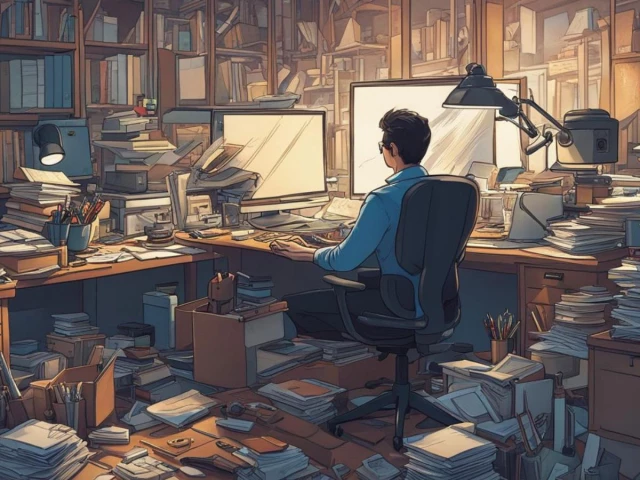I swore to never use ChatGPT when it first launched in 2022. Then, I began toying with the idea that to live in an ever-changing world is also to seek knowledge constantly, explore uncharted territories and not let fear rule over one’s digital practices.
ChatGPT was the new Internet and surely, a world without the Internet is laughable— even impossible—to imagine today. I concluded using it was inescapable and that if I wanted to not be left behind, I had to lean into the vast, dizzying world of AI.
Today, for work, I consult this all-knowing machine often. I watch it whizz up words together at a pace I never could, put pristine commas in their rightful place (the Oxford comma never forgotten), and tie all fed information neatly together, perfect GPT bow in place.
Its sorcery is immediate. Random inputs somehow coalesce together, morphing together into one intelligible output.
At the same time, I watch in real-time, my own sense of sentence structure dwindling. I mistakenly swap verbs and adjectives as I type on the screen, forget if it’s ‘tie’ or ‘tye’ (see: sentence above – it took a second!) and struggle, sometimes, to even write on paper.
My handwriting becomes more unintelligible as the days go by, looking more and more like an ancient relic staring back at me, some century-old scroll from when those particular swoops and curves made any sense at all. It feels like looking at myself in the mirror after a week of having the kind of flu that keeps you in bed — everything is right there as I remember it, but it takes a second for my face to shift into focus again.
Using ChatGPT can feel like something from The Substance — you feed your own alter-ego as you yourself recede into oblivion.
In a world that values productivity over all else, the use of ChatGPT isn’t surprising at all. Speed — that coveted machine-like quality — is the need of the hour. Organizations want money, and money requires efficiency. To shy away from this most natural course of the world, then, is perhaps to be silly.
I look at my own history with ChatGPT — the prompts I’ve put in, the answers it has provided me with. One prompt gets saved as ‘Tooth Extraction Do’s and Don’ts,’ another as ‘Text Condensation Request.’ I watch my personal and work life converge on the screen in this way. It’s perhaps not too different from a Google search history, but the interface — how it’s laid out like a conversation or an email chain between two people — is unsettling in a novel way.
I take a peek at my friend’s history, his hastily typed ‘whats a word to talk about kids minds meaning they are easily influenced?’ ChatGPT dutifully responds: malleable.
What I most miss when I’m using ChatGPT is not even that sense of authorship — though it is there. It’s more the very act of analysis, that moment when all the neurons in my brain are fired up and this thing connects with that thing in one perfect swoop.
I miss the gratification that comes from the act of making connections and the things you learn in the process of writing.
I’m not too attached to the final product — but I am attached to the roads I never get to travel when I’m following a set template. Where can my writing go without the guiding hand of ChatGPT? What are the questions I could never even think to ask it, if I wasn’t doing the writing—or editing— myself? What is it that I’m missing out on, when my thoughts barely have time to breathe on the paper, or the Google Doc or whatever clean slate it is that I prefer?
Perhaps it isn’t even AI’s fault, and it’s more so the system that constantly wants us to produce. But ChatGPT allows us to honor that pressure and minimise our turnaround time.
In turn, we accept the crazy expectations that are thrust upon us, chalking up fully-fledged marketing strategies, writing reports and articles, and creating pitch decks at lightning speed. I think of my LinkedIn feed, post after post in that same, stilted GPT voice, the kind that makes it difficult to trust the authenticity of anyone online.
Often, I find myself telling the language model, "Make it sound less like yourself."
The machine strives to sound more human on my command, whirring and churning somewhere in a huge, dark room — alive with electricity.



COMMENTS (4)
Comments are moderated and generally will be posted if they are on-topic and not abusive.
For more information, please see our Comments FAQ